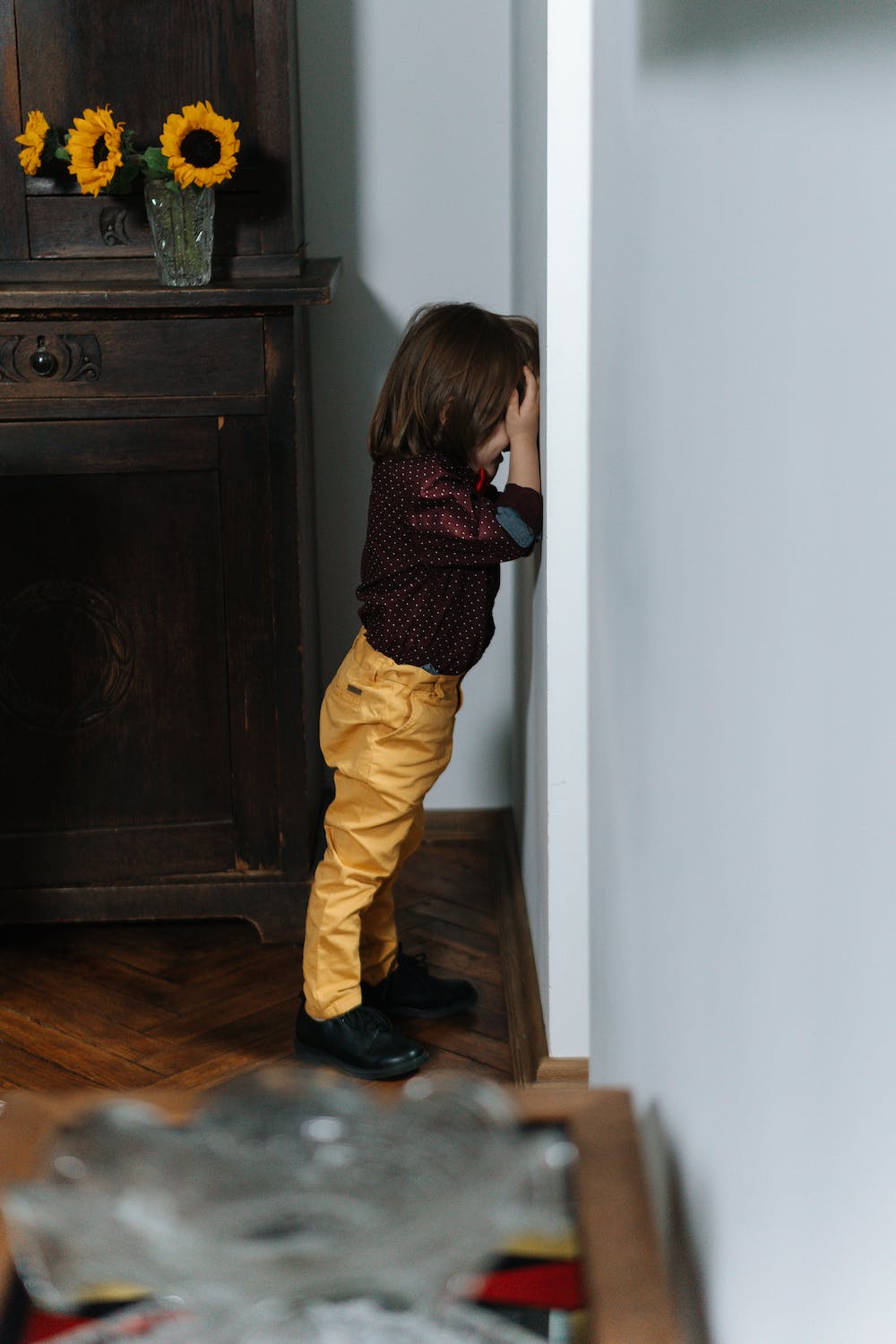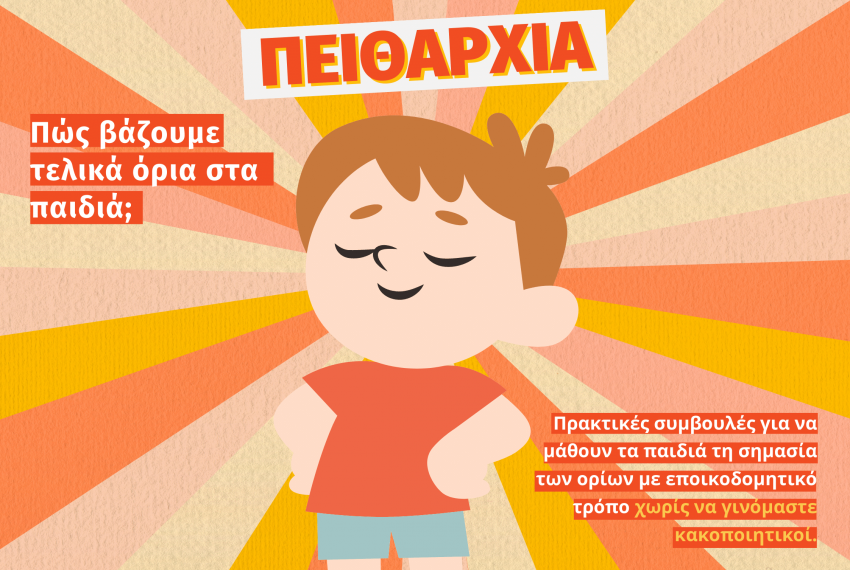Children are not robots. In the first years of their lives, they love to copy their parents' behaviours, but this does not mean that they are not constantly trying to understand what the limits are in their relationship with them, but also the limits of their interaction with the world in general. There is no child who does not test the endurance of the parents at some point of the week, maybe even of the day. So this condition necessarily leads parents to look for ways to teach their child the limits within which he can function and by extension the concept of discipline. It is important to focus on the word discipline and not punishment, as through it parents teach their children behavioural patterns related to both self-control and loss of self-control.

But before we talk about ways one can teach the concept of discipline to a child, it is good to look at the science behind unruly behaviours. It is human nature to seek autonomy and self-control, which is why children often struggle with boundaries. When they are forced to follow rules or boundaries set for them by others - even if those others are their parents - it is natural for them to feel frustrated or irritated and often react in a variety of ways. Emotions are at the core of human existence and we cannot always define them as adults, let alone in the early years of our lives. This is why even children who have almost no autonomy find it more difficult and react accordingly. So realistically we cannot expect a child whose brain is developing to show the logic and self-restraint that an adult shows. FYI, full brain development doesn't happen until the mid-20s.
So until children's brains are developed enough to make the appropriate decisions for each situation and consider the consequences of their actions, it is their job to test the parents' limits and try to take control of this relationship. On the other hand, It's also the parents' job to anticipate these behaviours and manage them with calmness and determination, as any confident leader must do if he wants to calm the storm of emotions a child feels when he's paranoid.
It happens to everyone
Children may exhibit behaviours that parents criticise and range from indifference and tantrums to gestures and insults, but this in no way means that one is not a good parent or that the child is saving behaviours from their adult future. It simply means that with communication, clear boundaries and confident leadership, the parent must bring it back to the land of reason. Yelling, insults, punishment of any kind do not teach a child anything and work only temporarily. They do not make sure that the child develops logic so that he can reflect on his behaviour in the future, so the moments when a child goes out of bounds, it is good to see them as an opportunity to show him the principles of self-control so that he can one day apply them same by itself. This process can only be done with boundaries and empathy.
What can you do
Focus on what you can control. In reality, no parent can police a child's behavior and emotions, so when a child misbehaves, you can control how you influence through your reactions and the boundaries you set.
Communication, not punishment. Communication with the child is an extremely important part of discipline, but also in general your sphere of influence on the child. The willingness to cooperate with you on the part of the child presupposes the condition that he always feels selfless love from you. Without communication, there is only frustration, escalation of negative emotions and punishment. If we accept that children's out-of-bounds behaviours are a normal part of human brain development and not a personal "attack" or an admission of some supposed parental failure, then parents gain the advantage of expecting such behaviours. This leads to them reacting calmly and compassionately, no matter how extreme a child is behaving. This is how one should interpret children's anger and reactions, as signs of the emotional storm happening inside a child.
So respond to tension with calmness. The child is in emotional turmoil so it is the parent's job to guide them to calmness because they simply cannot do it on their own in the present moment. An example of a dialogue where the parent puts the child's feelings into words is: "I understand that you don't want to leave the playground and that makes you sad. I wouldn't want to leave either. But we must eat before it is too late.'
Say what you feel. Try to communicate with the child to express what he is feeling at the time of the rant, whatever that feeling may be. Validate his feelings, not his behaviours. It's OK for a child to have negative feelings like anger or a sense of injustice when, for example, they can't play anymore or don't want to go to bed, but that doesn't mean you won't set your boundaries . Try to empathise with him in your communication by showing that you understand what he feels, but the feeling is independent of the boundaries he needs.
Limits are not punishment. When you set boundaries you don't have to be overbearing or strict. You can enforce them with kindness and confidence by acknowledging the difficulty your child is going through at the time, but still continuing to enforce them. There is no power dynamic in your relationship with the child, because we are not talking about a relationship where the two parties do not have equal power, so don't see his reactions as a power play.
Love and peace is power. You are a parent. You don't need to explain the boundaries you set, just lovingly guide it into acceptance.
Why it saves families. Don't focus on the symptom, but on the cause when a child is convulsing. Talk to it and help it express itself. The process will help you understand behaviours and react better when they happen again in the future.
Boundaries and expectations. Without boundaries, children feel in absolute power and spiral out of control. It is good that the boundaries are specific in their lives and that both parents and children know them. Especially when it comes to sleep, play or screen time, and the rest of a child's daily routine, boundaries help everyone involved know what to expect. Apply boundaries regardless of the children's reaction and help everyone involved in the relationship understand them.
tag:Wonder Wall


